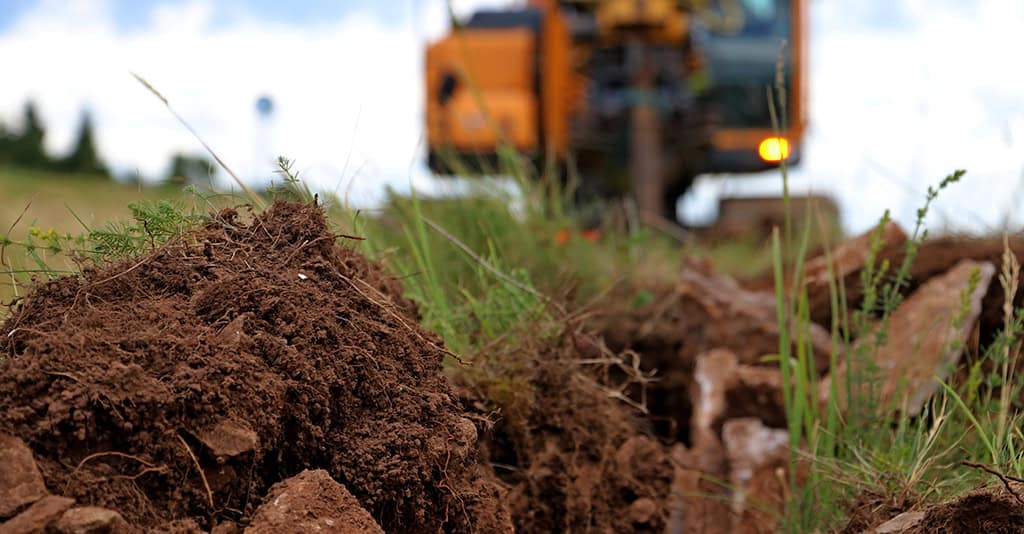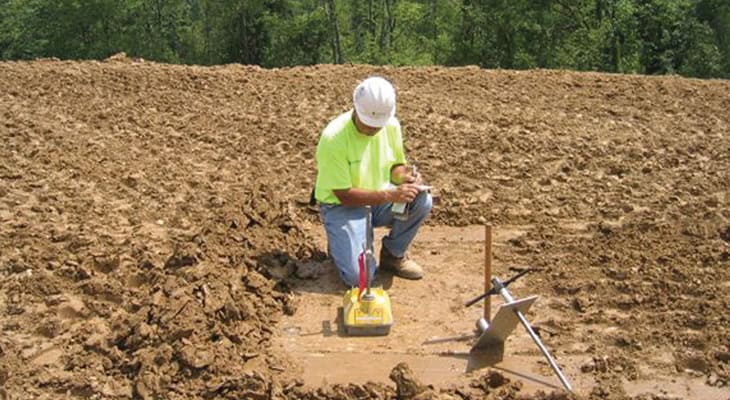For any construction or engineering project in Dallas, understanding the underlying soil conditions is crucial for ensuring safety and stability. This understanding comes through soil testing in Dallas, a comprehensive process involving meticulous analysis of soil properties. However, it’s essential to differentiate between soil testing for construction and that used for garden analysis. This article focuses solely on soil testing in Dallas specific to construction and geotechnical applications.
What is Soil Testing for Construction and Engineering?
Soil testing for construction and engineering in Dallas involves a series of procedures to assess the physical and chemical characteristics of the soil at a specific site. This information forms the foundation for critical decisions related to:
- Foundation design and construction: The test results determine the appropriate foundation type (e.g., shallow or deep foundations) and design parameters to support the planned structure securely.
- Excavation and earthwork planning: Understanding soil properties is crucial for planning safe and efficient excavation methods and estimating the cost and feasibility of earthwork activities.
- Slope stability and erosion control: Soil testing helps assess the risk of slope instability and soil erosion, allowing for the implementation of effective mitigation measures.
- Pavement design and performance: Analyzing soil properties helps design pavements that can handle anticipated traffic loads and weather conditions.
- Environmental impact assessments: Soil testing plays a vital role in understanding potential environmental concerns associated with construction activities, such as soil contamination or potential impacts on sensitive ecosystems.

What Does Soil Testing in Dallas Involve?
1. Site Investigation and Planning:
The first stage involves a thorough site investigation to gather background information about the project and the surrounding area. This includes:
- Reviewing existing maps, reports, and historical data related to the site and its geology.
- Conducting a site visit to assess surface conditions and potential challenges.
- Determining the required number and location of test borings based on the project’s specific needs.
2. Test Boring and Sample Collection:
Qualified geotechnical professionals perform the test borings using specialized equipment like soil augers, cone penetrometers, or drill rigs. These methods allow for the collection of soil samples at various depths, providing a comprehensive understanding of the subsurface conditions.
3. Laboratory Testing:
The collected soil samples are then transported to a qualified laboratory for a series of tests, which may include:
- Grain size analysis: This test determines the distribution of different particle sizes (sand, silt, clay) in the soil, which influences its permeability, strength, and other properties.
- Atterberg limits: These tests assess the soil’s plasticity and water content, which are critical for understanding its behavior under varying moisture conditions.
- Soil compaction tests: These tests determine the maximum dry density and optimum moisture content of the soil, crucial for proper compaction during construction activities.
- Chemical analysis: In certain situations, chemical tests may be necessary to assess potential contaminants, particularly for brownfield redevelopment projects.

4. Data Analysis and Report Generation:
The collected data from various tests is analyzed and interpreted by geotechnical engineers to:
- Develop a comprehensive soil profile describing the different soil layers present at the site.
- Characterize the engineering properties of the soil, including its strength, compressibility, and permeability.
- Provide recommendations for foundation design, excavation methods, and other construction aspects based on the soil conditions.
- Identify any potential geotechnical hazards and suggest mitigation strategies.
Key Differences Between Soil Testing for Construction and Garden Analysis:
While both types of testing involve analyzing soil properties, they differ significantly in their scope and objectives. Here’s a breakdown of the key differences:
| Feature | Soil Testing for Construction | Garden Soil Testing |
| Purpose | Assess soil suitability for safe and stable construction | Evaluate soil health and nutrient content for plant growth |
| Depth of testing | Typically deeper, ranging from several meters to tens of meters | Usually shallow, focusing on the top few inches of soil |
| Tests conducted | Focuses on physical and engineering properties | Includes tests for organic matter, pH, and specific nutrients |
| Reporting format | Detailed engineering report with recommendations for construction | Provides recommendations for amendments and fertilizer applications |
Conclusion:
Soil testing in Dallas plays a critical role in ensuring the success of any construction or engineering project. By understanding the soil conditions and interpreting the results through comprehensive testing and analysis, professionals can make informed decisions, leading to safe, sustainable, and cost-effective construction practices. Remember, for any inquiries related to soil testing specifically for construction and geotechnical purposes in Dallas, it’s crucial to consult with qualified geotechnical engineers or environmental consultants.
How useful was this post?
Click on a star to rate it!
Average rating 4.5 / 5. Vote count: 56
No votes so far! Be the first to rate this post.

